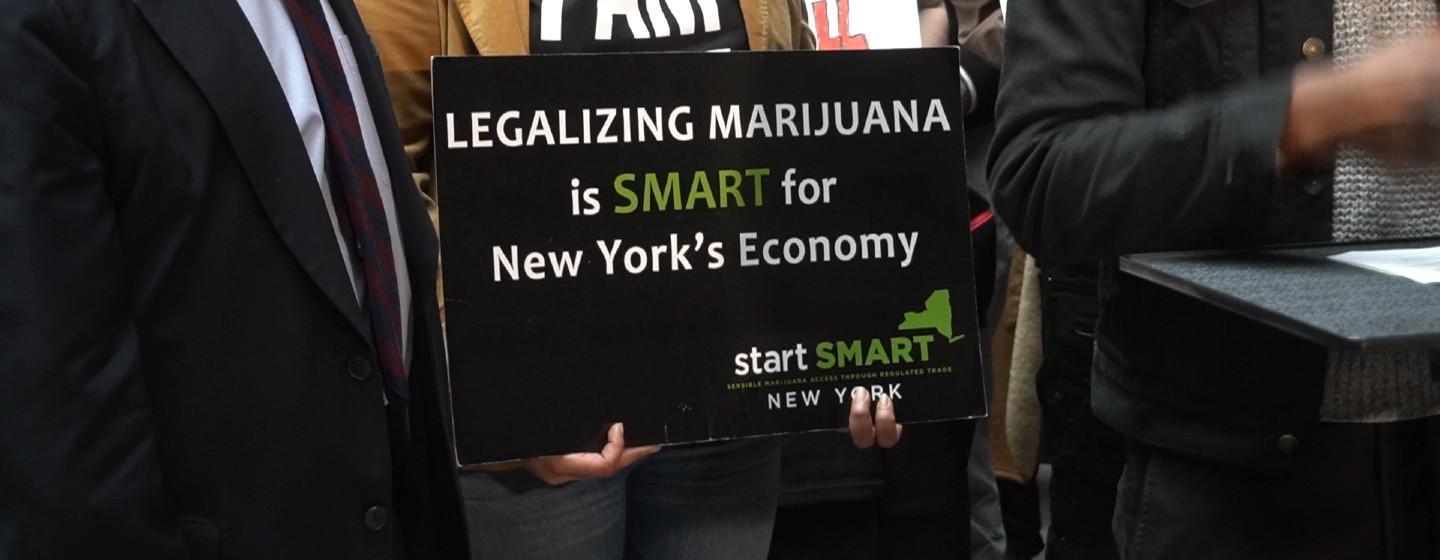Cuomo Proposes Legal Marijuana for Third Year, With New Changes

Marijuana Legalization Debate in New York
Gov. Andrew Cuomo unveiled a new proposal Tuesday to legalize marijuana in New York for adult, recreational use that would set aside a specific amount of tax revenue annually for social equity purposes, like reinvestment in communities disproportionately affected by the state’s drug laws.
That’s different from Cuomo’s previous marijuana legalization proposals, which allowed funding for social equity purposes, but didn’t earmark an exact amount.
Cuomo’s also proposing a different tax structure for the sale of marijuana than he’s pitched in recent years, narrowing in on the potency and type of product, rather than strictly on weight.
In his new proposal, Cuomo is seeking a wholesale tax of seven-tenths of a cent per milligram of THC, the active ingredient in cannabis. That tax would only apply to flower, pre-roll, and shake products. Other products would be taxed more.
For cannabis concentrates and oil products, including topical treatments, the state would set a tax rate of one cent per milligram of THC content, and cannabis infused products, including edibles, would be taxed at four cents per milligram.
Those taxes wouldn’t apply when the drug is purchased from a dispensary; they would be paid by retailers to wholesalers, though the cost could be passed on to consumers.
For retail consumers, Cuomo’s new proposal would tax the sale of cannabis products at 10.25%, but state and local sales taxes would apply on top of that as well. That’s still cheaper than Cuomo’s previous plan, which proposed a statewide tax rate of 20%.
The change means consumers in some counties could buy the drug with a tax rate as low as 17.25%. That would only apply in the handful of counties with a combined state and local sales tax rate of 7%.
Most counties in New York have a combined local and state sales tax rate of 8%, so most areas of the state would tax the sale of cannabis to consumers at 18.25%. It would be most expensive in New York City and Yonkers, which both have a combined sales tax rate of 8.875%.
Cuomo, during his address on the state budget Tuesday, said the potential tax revenue from the cannabis industry would likely help garner support for legalization this year. New York is projecting $350 million in tax revenue when the program is fully phased in.
“We need the funding, and I think needing the funding will get us passed the bumps in the road,” Cuomo said.
Cuomo has also modified his proposal to change how the tax revenue from the marijuana industry would be used. He’d previously sought to send most of that revenue to the state’s general fund, which would allow it to be used however the state wanted at the time.
The new proposal would set aside $100 million for “social equity purposes” over four years, with the remainder going into a new Cannabis Revenue Fund.
Democrats in the state Legislature have long-sought to have a large share of the revenue from the marjuana industry earmarked for reinvestment in communities disproportionately impacted by the state’s prohibition of cannabis. Cuomo had previously rejected that request.
His new proposal, according to a document with a brief explanation of Cuomo’s budget, would set aside $50 million annually for social equity purposes by fiscal year 2026, which would run from April 2025 to April 2026.
It would take several years to get to that amount, according to the document. In the first year of marijuana sales, only $10 million would be diverted for social equity purposes. The amount would increase by $10 million each year after until it reaches $50 million.
According to Robert Mujica, director of the state Division of Budget, the fund would be replenished each year through tax receipts, with $50 million earmarked annually after the first four years of the program.
“As the program ramps up, a portion of the funding will go to $100 million,” Mujica said. “Then, there will be an ongoing fund.”
The scale-up of that funding reflects what the state expects to collect in tax revenue during the first few years of legalization. The state is only projecting $13 million in revenue during the program’s first year and about $350 million at its peak in more than three years.
The legislation would also create a new office, called the Office of Cannabis Management, that would regulate the state’s industry. That was also in Cuomo’s previous proposals.
If Cuomo’s new plan is similar to his previous proposals, it would also establish a board of individuals to control licensing and how revenue from the marijuana industry is appropriated — including for social equity purposes.
Lawmakers, meanwhile, have their own proposal to legalize marijuana. They’ll now begin negotiations with the Cuomo administration on a final deal.
Smart Approaches to Marijuana, a group opposed to legalization, criticized Cuomo for his support of the drug.
“Our state and nation continue to be ravaged by COVID-19, any second spent by lawmakers deliberating on how to best benefit Big Pot is a slap in the face to New Yorkers who are suffering,” said Dr. Kevin Sabe, the group’s president.
If approved, legalization of marijuana would likely be included in the final state budget. That’s due at the end of March.
Related
Marijuana could be legalized next year & chances of that happening are higher than ever.
Cuomo's 2021 Budget Address
Cuomo's 2021 State of the State
Gov. Andrew Cuomo delivers his 10th State of the State Address.


